Eating a plant-based diet has a number of incredible health benefits. A plant-based diet means eating more whole foods and plants – fruits, vegetables, whole grains, legumes, nuts, and seeds. But how do you get enough protein in your plant-based diet? These top 5 plant-based protein sources are key!
What is a plant-based diet?
A plant-based diet means eating more whole foods and plants – fruits, vegetables, whole grains, legumes, nuts, and seeds. It doesn’t necessarily mean strictly eating plants only. For some, a plant-based diet does exclude all animal products, which is a vegan diet. For others, it’s just about choosing more foods from plant sources than from animal sources. It’s a nice way to make plants the main part of your diet without needing to completely eliminate dairy, eggs, meat, and fish.
Health benefits of eating a plant-based diet:
More Nutrient-Dense
It’s no surprise that plants are healthy. However, most of us don’t eat the recommended amount of fruits and veggies, so making the majority of your diet plant-based will up your fruit and vegetable intake which is amazing for your overall health. Fruits and vegetables are rich in vitamins, minerals, antioxidants, and fiber. Fiber is a nutrient that most of us don’t get enough of, and it has tons of healthy perks. It’s good for your waistline, your heart, your gut, and your blood sugar.
Weight Loss
People who follow a plant-based diet tend to have lower body mass indexes (BMIs) compared to those eating a heavy carnivore diet. Research shows that people who follow a vegetarian diet to lose weight are more successful not only at dropping pounds, but also at keeping them off.
Heart Health
Eating a plant-based diet may lower your risk of cardiovascular disease, and improve other risk factors for heart disease by lowering your blood pressure and cholesterol, and improving your blood sugar control. It can also help reduce inflammation, which raises your risk of heart disease by promoting plaque buildup in your arteries.
Lowering Risk of Diabetes
Did you know that meat-eaters have double the risk of diabetes compared to vegetarians and vegans? That means that eating a plant-based diet significantly reduces your risk of developing diabetes. Another study shows that people who eat a plant-based diet have higher insulin sensitivity, which is important for maintaining healthy blood sugar levels.
Reduce Risk of Cancer
Research consistently shows that regularly eating plenty of fruits, veggies, legumes, and grains is associated with lower cancer risk. Plants contain disease-fighting phytochemicals that have also been shown to prevent cancer. Studies also show an association between eating red and processed meats and increased cancer risk. Eating a diet made up of predominantly plants keeps your body in more of an alkaline state, which wards off diseases. Diseases can only thrive in an acidic environment. Animal products (such as meat and dairy) are extremely acidic and can feed diseases in the body.
Best Plant-Based Protein Sources:
Soy
Foods like tofu, tempeh, and edamame are great options for adding protein into your diet. Tofu and tempeh can seem a little intimidating to cook with, but they’re delicious when cooked properly. Try cooking up a stir-fry featuring tempeh or tofu. Most experts recommend eating up to two servings of soy foods a day. Soy isoflavones are excellent for heart health and may help reduce muscle damage during exercise.
Nutritional Yeast
Nutritional Yeast is an inactive yeast that is golden in color and has a unique cheesy flavor. It has 4 grams of protein per 2 tablespoons and, as a bonus, is a great vegan source of vitamin B12. Most food sources of vitamin B12 are animal sources, so many vegans need to supplement. Enjoy nutritional yeast in sauces or dressings, sprinkled on your next pasta dish or on avocado toast.
Whole Grains
Typically, whole grains are thought of as carbohydrates, however, many whole grains are packed full of protein. They also add fiber, vitamins, and minerals to your diet. To boost your daily grain intake, make a warm bowl of oatmeal for breakfast, add a serving of brown rice to your lunch salad, or make a delicious quinoa salad for dinner. Quinoa packs a healthy 8 grams of protein per 1 cup.
Legumes
If you’re looking for a budget-friendly way to increase your plant-based protein intake, legumes are your friend. The category of legumes contains beans and lentils, both powerhouses when it comes to plant protein. Different lentil varieties can contain up to 18 grams of protein per cup, while beans can range between 10 to 18 grams per cup depending on the type. Lentils make for a great taco filling or addition to a hearty soup. Try adding some black beans to your next burrito bowl and hold the ground beef.
Seeds and Nuts
Seeds are one of the most versatile plant-based foods. Whether it’s adding chia seeds to oatmeal, flax seeds to a smoothie, or making chia seed pudding, seeds are high in protein and fiber. Flax, chia, and hemp are also good sources of plant-based omega-3 fats. Nuts are equally as versatile and such an easy on-the-go snack. Since nuts are such a dense food, you don’t need to eat large quantities to reap the benefits. A mere 1.5 ounces of nuts contains a hefty dose of protein. Add a tablespoon of almond butter to your next smoothie, smear some peanut butter onto an apple, or sprinkle a handful of walnuts onto a salad for an extra boost.
We hope this information from SoFabFood Home Chef, Nicole from Living Well with Nic, helps you in your quest for a happier, healthier you! For daily recipe inspiration, like us on Facebook and follow us on Pinterest. Enjoy!







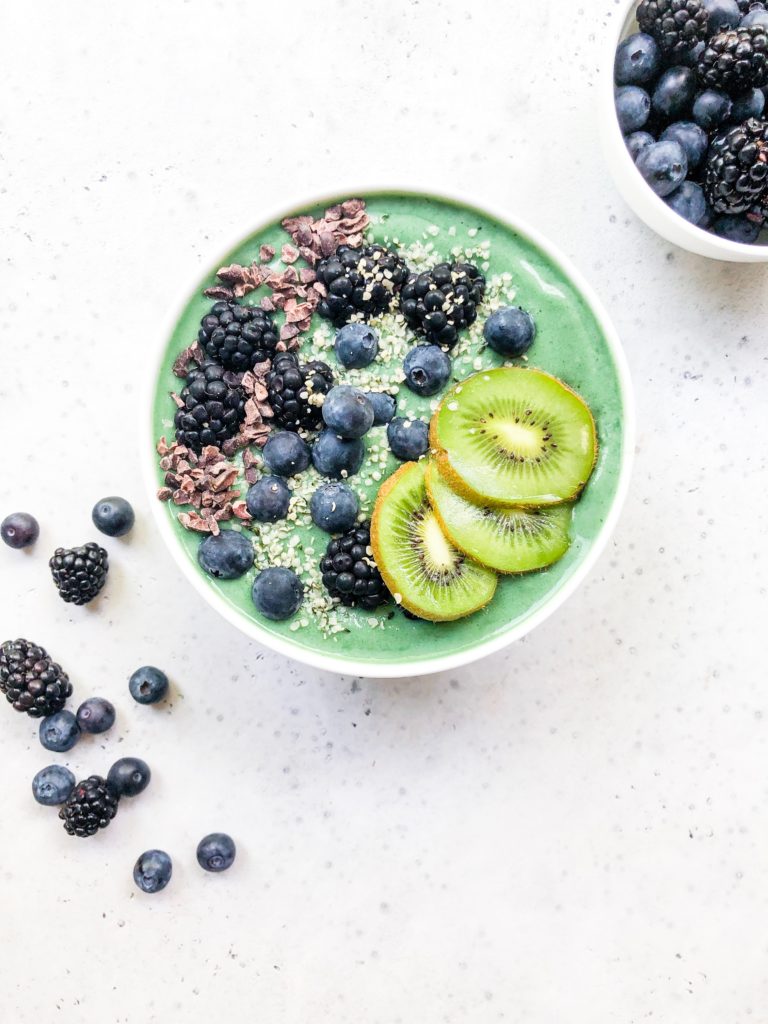
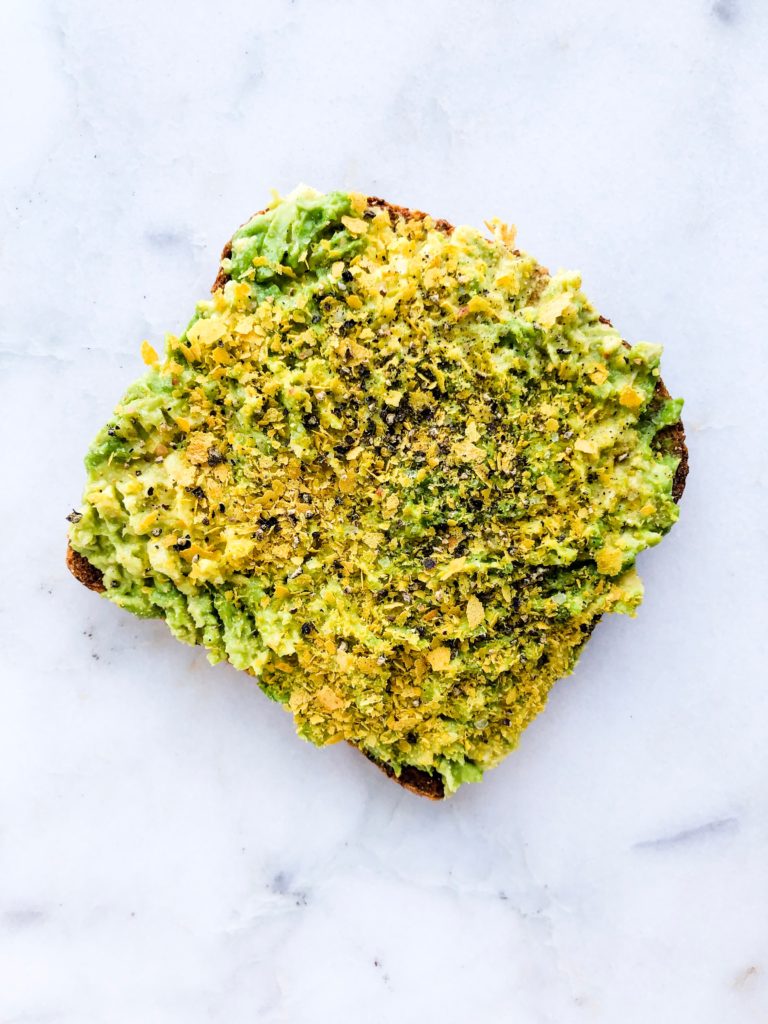
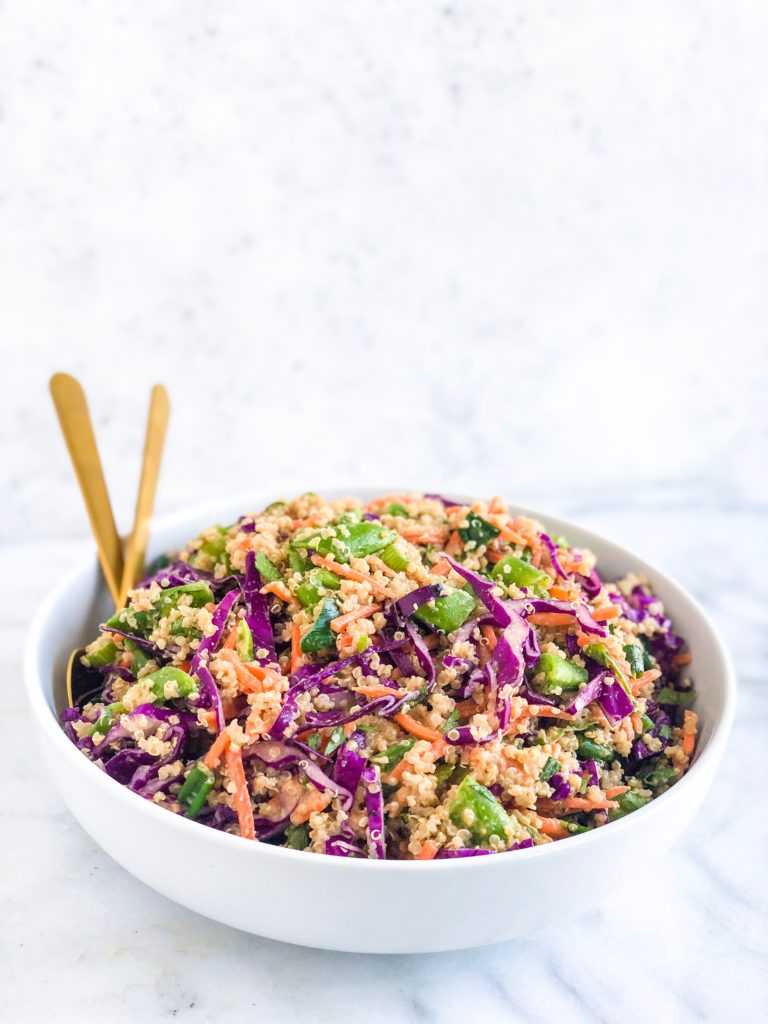
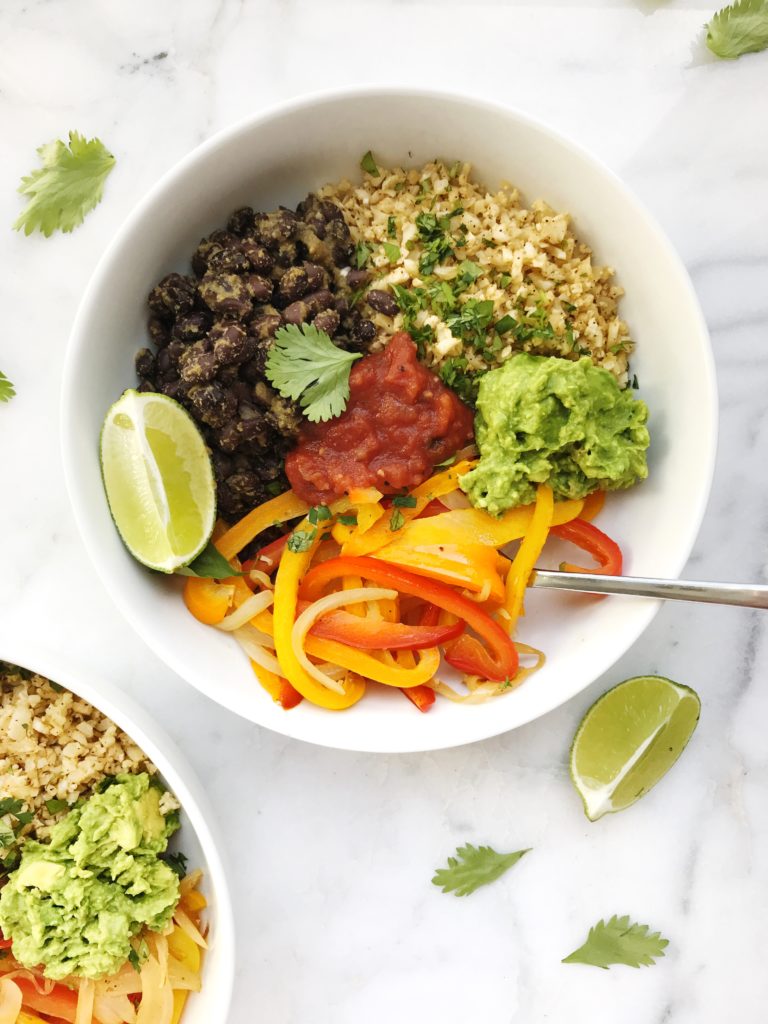
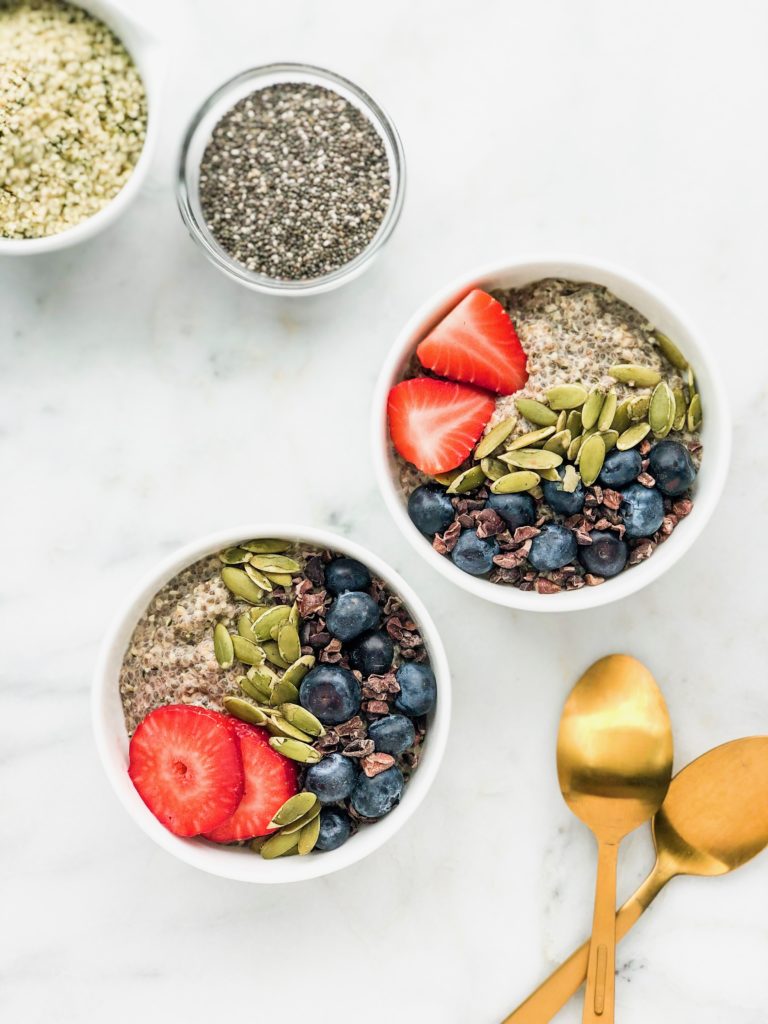
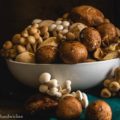

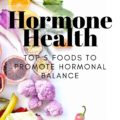
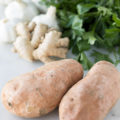



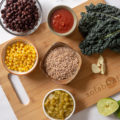

Leave a Reply